2021 Olympics: How the Tokyo Games will go ahead and the athletes who will benefit most from the delay
If you think you know what to expect from the 2021 Tokyo Olympics, think again. This will be a fortnight like no other – and that’s just off the field.
Olympics
Don't miss out on the headlines from Olympics. Followed categories will be added to My News.
The first modern Olympic Games held in an odd-numbered year, Tokyo 2021 is going to be very different from all of the others.
As the world’s biggest multi-sports event, the level of planning that goes into running an Olympic Games is already mind-boggling but the extra biosecurity challenges caused by the global pandemic have elevated Tokyo to a whole new level of complexity.
It may not appear that unusual to anyone casually watching events unfold on television, but rest assured, nothing on the ground at Tokyo 2021 will be close to normal.
Foreign spectators have already been told they won’t be allowed into Japan so they will have to stay at home while the decision on how many local fans can attend events is still pending – though one thing is already known: if they do get inside the stadiums, they’ll have to keep quiet because singing and cheering isn’t permitted.
Kayo is your ticket to the best sport streaming Live & On-Demand. New to Kayo? Try 14-Days Free Now >
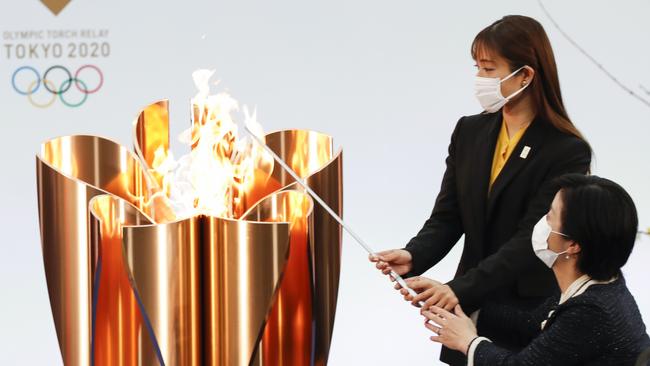
The 10,000 plus athletes won’t be forced to get vaccines but have been warned they won’t be able to compete unless they pass a coronavirus test on arrival in Japan while strict social distance protocols will apply.
Then, as soon as their events are finished, they need to be on the first plane home.
If that all sounds gloomy, then remember this: most Olympic athletes are used to performing in front of small crowds with little fanfare so that won’t be any different.
Only this time, billions of people will be watching the most anticipated sports event in history and a gold won in Tokyo will be just as valuable as a gold medal won at any other Games,
And for athletes, that sure beats the nuclear option of cancelling everything.
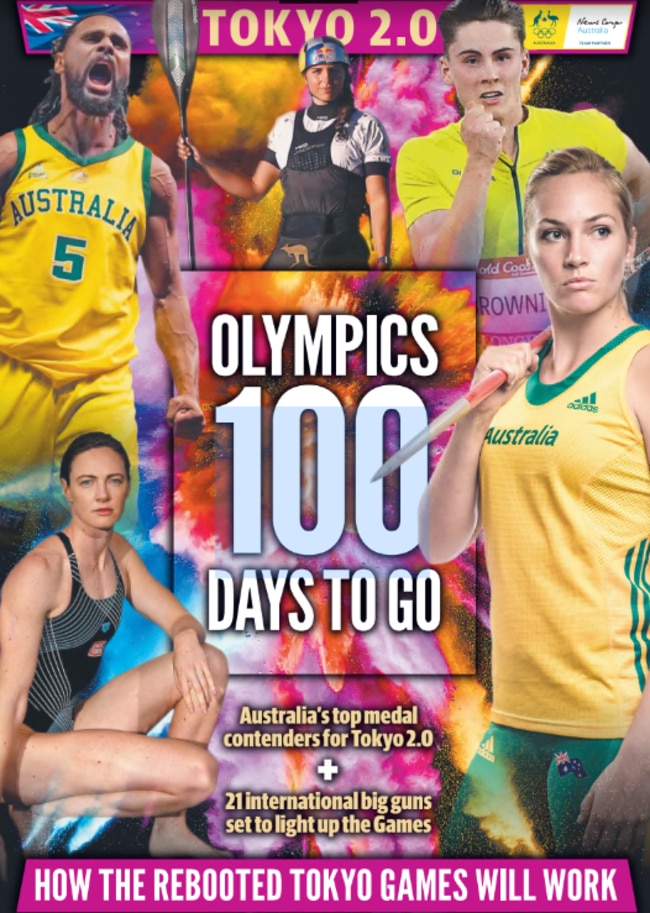
ATHLETE PREPARATION
Australia expects to send a team of around 480 athletes to Tokyo. Australian athletes are way ahead of most other countries because they’ve mostly been able to train without any major disruptions. The biggest problem has been the lack of opportunities to practice against international opponents in the lead-up but almost every country is in the same boat.
VACCINES AND TESTING
It won’t be mandatory for any athletes or officials going to Tokyo to get vaccinated but it is highly recommended. Although nothing official has been announced yet, you can bet that everyone on the Australian team will be offered the jab if they want it especially as all athletes and officials will have to pass a Covid test within 72 hours of flying to Japan, then pass another test on arrival before being allowed to compete.
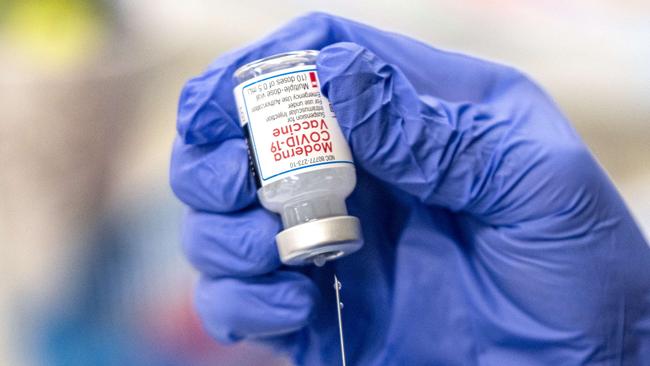
QUARANTINE
Anyone who fails a test on arrival will have to go into isolation at a Japanese government approved facility then pass another test before rejoining their teammates. Every country has their own rules but for Australian athletes, they can expect to have to spend two weeks in quarantine when they return home so don’t expect any ticker-tape parades.
CEREMONIES
For the first time, each country will have two flag bearers, one male and one female, but the number of participants at the Opening and Closing Ceremonies will be heavily reduced. Organisers have told athletes not to arrive in Japan any more than five days before their event, and to leave within 48 hours once they’re finished, so most will be watching from television. The protocols for medal ceremonies will also change with competitors told to observe social distancing rules.
FOREIGN FANS
Overseas spectators were among the first big casualties of the new rules to make sure the Games proceed. Confirmed only last month, non-essential people from countries outside of Japan have already been told they won’t be allowed in. This includes the family and friends of athletes as well as a lot of the VIPS who just show up for the freebies.
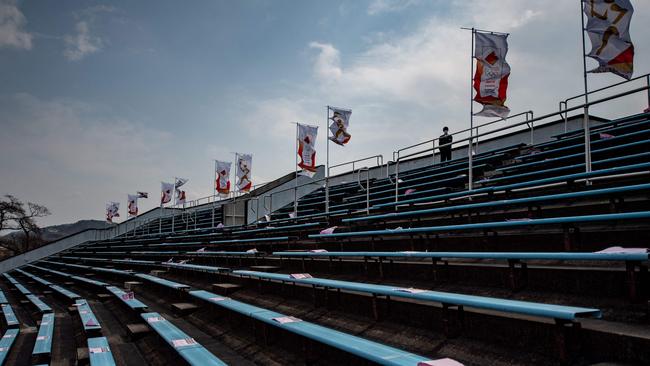
NO CHEERING ALLOWED
One of the most bizarre rules that has been put in place is a ban on cheering. You read that right. Yes, spectators, if there are any, will be told not to sing or chant or scream out support to athletes in fear of spreading the coronavirus. Instead, they have been told to show their appreciation through clapping.
SOCIAL DISTANCING
One of the biggest bonuses of living in the Olympic village for athletes is they get to meet and chat with competitors from all over the world. But not this time because of the strict social distancing rules that have been put in place that will include staying well apart, wearing face masks and even eating meals at staggered times.
NO HAPPY SNAPS
If all that isn’t bad enough, athletes have also been warned that all tourism and sightseeing will be banned, so there will be no trips to the Shibuya Crossing or selfies under Tokyo’s famous neon lights. Instead, they’ll be under orders to pack up their bags and head home within 48 hours.
THE WINNERS AND LOSERS FROM DELAYED GAMES
It was a pregnant pause of Olympic proportions.
All of a sudden, training regimes were rewritten and peak performances rescheduled.
For some, it meant waiting that bit longer for their Olympic debut, for others it meant delaying retirement by another year.
Sadly, for a minority of elite athletes, the delayed Tokyo Olympics resulted in walking away.
The 12-month delay that turned 2020 Olympic preparations upside down can be bookended by the journey of Matilda Katrina Gorry and discus thrower Danni Stevens.
For Gorry, 2021 was always pencilled in as the year the 28-year-old wanted to fall pregnant — it was the only downtime in the Matildas’ playing schedule in the next four years.
Not even a pandemic was going to change Gorry’s desire to start a family, so she is staying at home.
But for Stevens, the delayed Games gave the thrower an outside chance to extend her Tokyo dream after a freak gym accident was thought to have ended her career.
Wedged in between the two is marathoner Jess Stenson, who was out - then in - then out again following the birth of her son Billy.
This is the yin and yang of COVID-19 and the Tokyo Olympics. For every upside, there is a downside.
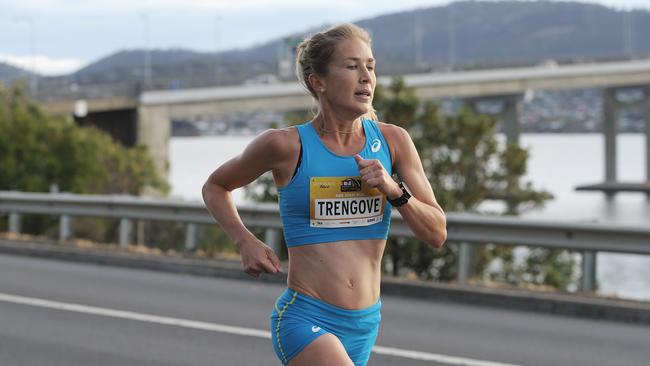
CLOCK TICKING
Stenson was always realistic about the challenge ahead of her.
In deciding to chase her Tokyo dream, the 33-year-old gave herself just six months after pregnancy to be race fit and to post a qualifying time.
With travel restrictions and the uncertainty of mass participation events going ahead, Athletics Australia announced a new marathon event for April 25 specifically for elite athletes to post qualifying times before the Olympic qualification deadline of May 31.
But even a sub 2hr 30min would not have guaranteed Trengove selection.
But it was a glimmer of hope until in chasing that dream, stress fractures have now forced her out.
“The depth in distance running in Australia is outstanding, and it (was) a super tight window,” she said.
Australia already has four women with qualification times — Sinead Diver, Lisa Weightman, Ellie Pashley and Milly Clark.
“I just feel so grateful to be able to run ... and lucky to have my family,” she said.
WINNERS
DANI STEVENS (DISCUS)
In an extraordinary return to competition, the world-class discus thrower has recovered from spinal surgery and year-long rehabilitation.
Stevens threw 63.36 metres last month, just shy of the qualifier of 63.5 metres but had already thrown a qualifier pre losing use of her right arm during a weightlifting session.
The gift of an extra 12 months may see the 32-year-old become the first Australian woman to throw 70 metres in her event – and win a medal in Tokyo.
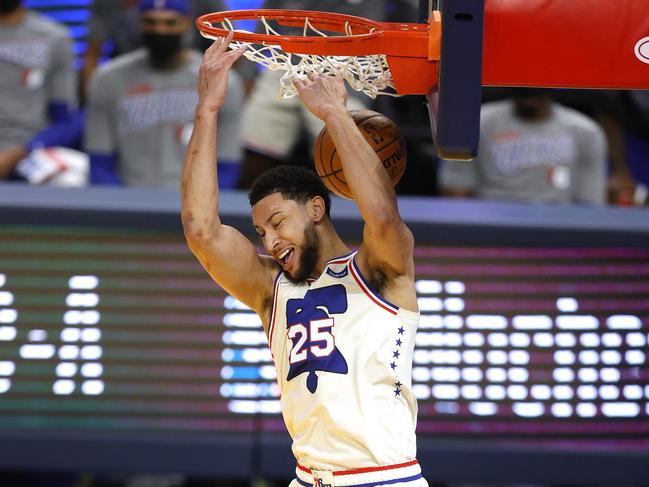
BEN SIMMONS (BASKETBALL)
Simmons wants an Olympic medal but it will only be the delayed NBA season, and not knee or back injuries, that may stop him.
If Simmons and his Philadelphia 76ers run deep into the play-offs, it would likely rule Simmons out of his first Olympics as the NBA finals end just as the Games begin.
Quarantine regulations would make it difficult for NBA players to join their national teams.
Twelve months ago, Simmons was juggling a nerve impingement in his back so severe he was vomiting in pain.
Fast forward to now and Simmons is talking about winning an Olympic medal.
JENNA MCCORMICK AND MICHELLE HEYMAN (WOMEN’S FOOTBALL)
Two names firming up in Tokyo conversations that were missing 12 months ago.
Injuries and anxiety saw Heymann announce her retirement in 2019 but the forward is back wearing the boots for Canberra in the W-League.
McCormick, 26, cut short a nightmare stint in Spain to join W-League club Melbourne City this season and is working overtime to secure a plane ticket to Tokyo.
OLIVER HOARE (1500M ATHLETICS)
Hoare clocked one of the fastest 1500m indoor times ever but he still might not qualify for Tokyo.
In February, the 24-year-old stormed home at the New Balance Indoor Grand Prix in New York, winning in 3:32.35 – an Australian record and the sixth-fastest indoor time ever.
However, selection will come down to an independent panel and AOC agreeing on the final three spots.
ROHAN BROWNING (100M ATHLETICS)
Browning will make history at Tokyo when he becomes the first Australian male to compete in the 100m at the Olympic Games in 17 years, after clocking a qualifier (10.05secs) at the end of March.
KAYLEE MCKEOWN (100M/200M BACKSTROKE)
Could be the breakout performer for the Dolphins. Improvement in the past 12 months has been phenomenal.
IN THEN OUT:
ARTISTIC SWIMMING:
Artistic swimmer Alessandra Ho is set to make her Olympic debut next year after replacing Jane Fruzynski on Australia’s team for Tokyo 2020.
Hannah Burkhill was added to the artistic swimming team in September after Rio 2016 Olympian Amber Rose Stackpole announced her retirement in August.
CHLOE ESPOSITO (MODERN PENTATHLON):
Australia’s reigning Olympic champion in the women’s modern pentathlon was expected to peak in Tokyo until her surprise pregnancy.
With her son Ted, turning one during the rescheduled Games, Esposito said she was eyeing a rescheduled Tokyo with relish.
But time and lack of international competition courtesy of the pandemic has worked against Esposito who will reset for Paris 2024.
LOSERS
For some, 2020 was meant to be their year – the year when all the hard work culminated in a professional climax.
Until COVID-19 interrupted everything.
While some used different resilience techniques to reset and recalibrate, others let in their grief and let go of the fairytale.
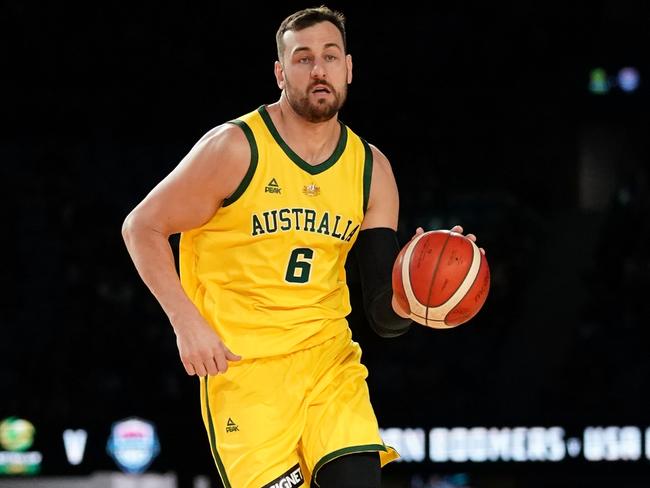
ANDREW BOGUT (BASKETBALL)
It was thought Bogut would suit up for his fourth Olympics and then call time on his professional career.
But in announcing his retirement last year Bogut said: “I can’t physically and mentally get to 2021 with the way my body has been.”
“I could get there with a lot of painkillers and mental anguish but it’s just not worth it.”
MEL BREEN (100M)
Australia’s fastest woman Mel Breen was due to line up for her third, and final, Olympics in Tokyo. When the event was postponed, she knew what she had to do: retire, aged 29.
People are asking her why she can’t just hold on for another year.
“Holding on and being elite don’t align,” she replied.
“Every single choice I made was: is this going to help me run fast or not? It takes up so many waking hours.
“I could only work half days, four days a week. Everything else was training, rehab, mobility practice, physio, gym, pilates class.
“So much upkeep is required to continue. You can only run on that wheel for so long. It’s exhausting.”
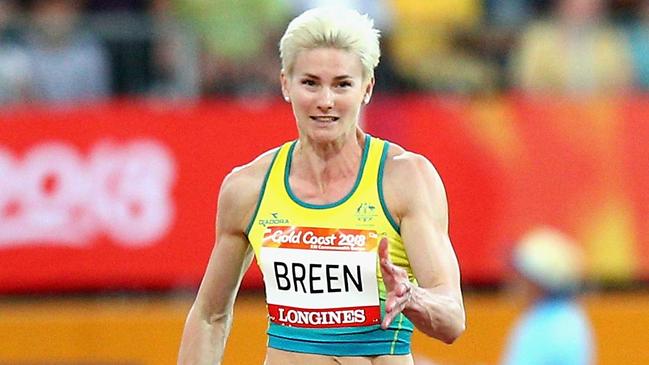
AIS clinical psychologist Mary Spillane said the delayed Games had increased anxiety in elite athletes, to levels more prevalent than in the general population.
“In 2018, one in three athletes reported mental health incidences,” Spillane said.
“But a survey of 3000 people right before COVID, revealed one in two athletes suffering from anxiety or stress with the postponement of the Games.
“There was a period of athletes feeling hopelessness, lack of motivation and we’ve been working hard on adaptability, resilience and the fact that it’s OK to be feeling anxious.”



